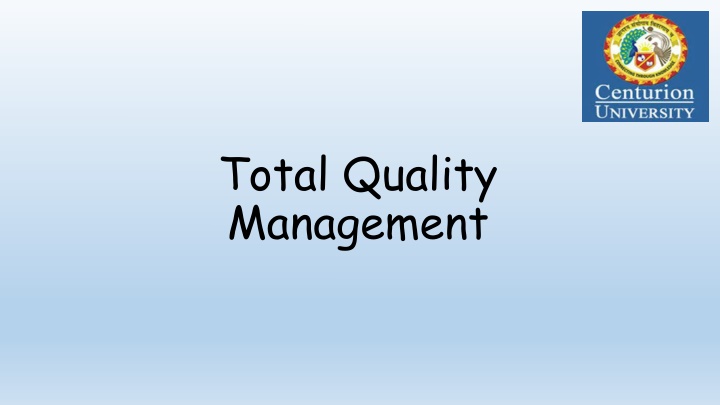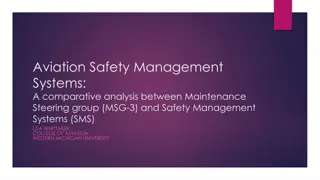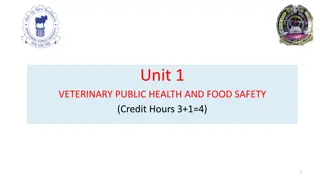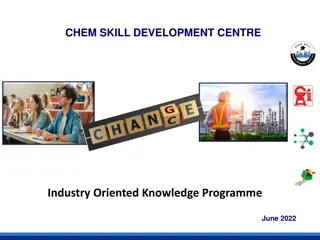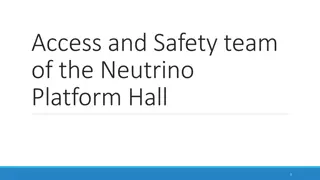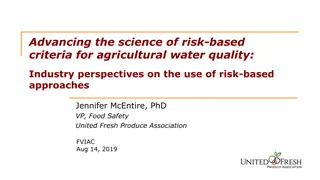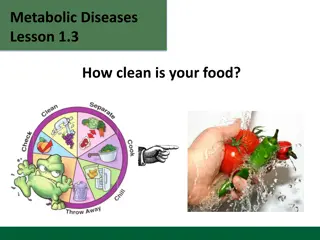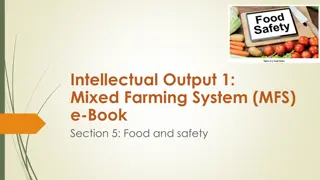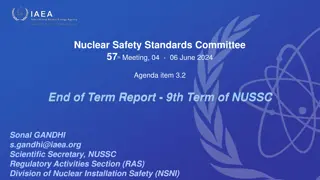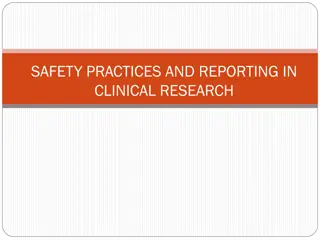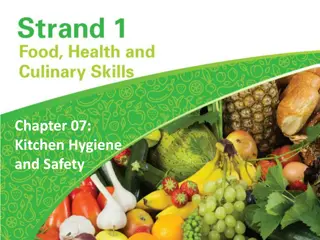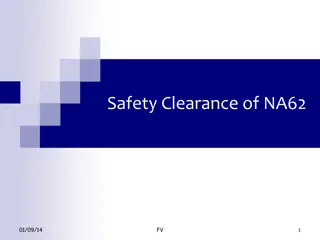Food Safety and Quality Management in the Food Industry
Food safety is a critical concern in the food industry due to frequent outbreaks and consumer uncertainty. To meet market needs and legal requirements, producers must adhere to specific standards and implement systems for managing quality and safety. Quality assurance systems like GAPs, GMPs, and HACCP, along with ISO certifications, play a crucial role. Establishing a quality management system (QMS) and following Good Manufacturing Practices (GMPs) are essential for ensuring safe and high-quality food production. The HACCP approach focuses on identifying and controlling health hazards throughout the food chain.
Download Presentation

Please find below an Image/Link to download the presentation.
The content on the website is provided AS IS for your information and personal use only. It may not be sold, licensed, or shared on other websites without obtaining consent from the author.If you encounter any issues during the download, it is possible that the publisher has removed the file from their server.
You are allowed to download the files provided on this website for personal or commercial use, subject to the condition that they are used lawfully. All files are the property of their respective owners.
The content on the website is provided AS IS for your information and personal use only. It may not be sold, licensed, or shared on other websites without obtaining consent from the author.
E N D
Presentation Transcript
Total Quality Management
Introduction Food safety remains critical with frequent outbreaks Consumers attitude is dominated by high levels of uncertainty Food industry has to meet market needs and legal requirements safety + quality Producers should implement specific standards for specific activity and should establish, document, and implement effective systems for managing quality and safety
Quality Assurance Systems Basic safety systems: prerequisites (GAPs, GMPs, GLPs) Advanced safety systems HACCP Integrated food safety management ISO22000 Basic quality management systems ISO9001 Advanced quality management system ISO9004
Quality Management System (QMS) QMS is defined as a set of coordinated activities to direct and control an organization in order to continually improve the effectiveness and efficiency of its performance Food quality is assessed only in relation to food safety Food to be considered safe for consumption must meet: legislative, technological, hygienic, transport and handling, and trading conditions and satisfy its intended use
Good Manufacturing Practices (GMPs) GMP s are the minimum sanitary and processing requirements for food companies They are a series of general principles that must be followed during manufacturing Precautions taken to ensure adherence to all quality and safety basic requirements like: Elimination, prevention, minimization of all product failures Consistently yield safe, ensuring a certain quality uniformity
HACCP Hazard Analysis Critical Control Point Is a preventative, proactive and systematic approach of food safety, that relies on the identification and control of all the known associated health hazards in the food chain Based on seven principles developed to control biological, chemical, and physical hazards from the raw material production through manufacturing, distribution and consumption of the finished product
ISO 9000 Series of standards (9001, 9002, and 9003 combined into 9001 The process management refers to monitoring and optimization of a company s tasks and activities instead of just relying on inspection of the final product ISO 22000:2005 is a food safety management standard that is developed based on the ISO9001 approach
Total Quality Management (TQM) It is an integrative philosophy of management for continuously improving the quality of products and processes The effective integration of the individual systems will improve the performance of the organization Quality management corresponds to a company s overall organization as regards the products quality (including safety), and involves QMS (ISO 9000, ISO 14000)
Quality Assurance Quality assurance relates to a product itself and involves all the safety assurance systems (GMP, GHP, and HACCP) Quality Assurance Control Points refer to quality assurance, and not safety Maintenance and introduction of all the quality characteristics of food (nutritional, sensory, and convenience values) in quality assurance systems is not required by law although desirable by customers
Importance of QMS Has four main components - quality planning, quality control, quality assurance, and quality improvement Food manufacturers should integrate quality and safety systems to assure that all the safety aspects of food are combined with ISO 9001 so that technological and management issues related to safety and quality are achieved Implementing QMS will ensure fulfillment of customer s and organization s requirements at an optimum cost
